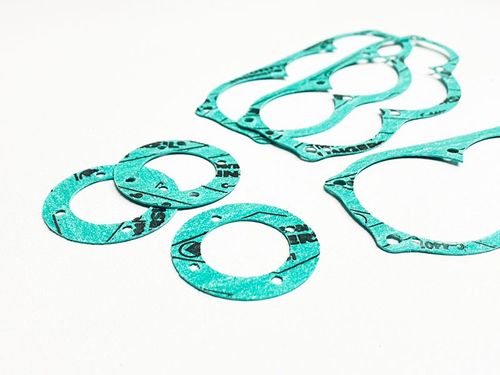
5 Reasons for Thermal Gasket Failure — And How to Prevent It
Thermal gaskets play a critical role in blocking heat transfer, which insulates components and protects sensitive systems from long-term damage. But like any gasket, failure to properly seal, cushion or resist vibration can lead to serious issues which includes gasket failure.
Thermal gasket failure isn’t always immediate. Different forces like heat, chemical pressure or even a poor fit can slowly undermine material performance over time, which leads to costly overheating, component wear or even a full system shutdown.
At SRP, our engineering and development teams are here to help you pinpoint the cause and help you prevent it from happening again. For starters, we’ll dive into some of the most common causes of thermal gasket failure and how to prevent them.
1. Overheating: When Thermal Gaskets Exceed Their Temperature Limits
Every thermal gasket material has its optimal operating temperature range. Exposing it to temperatures beyond its upper limit — even briefly — can cause premature degradation, leading to cracks, leaks or reduced performance.
Prevention tip: Choose gasket materials rated for both normal operating temps and potential extremes. We’ll help you match the thermal material to your application’s thermal profile.
2. Thermal cycling: Repeated temperature spikes
Outdoor and high-demand applications are exposed to rapid temperature fluctuations. Solar exposure can cause interior temperatures to rise beyond expected levels, while freeze-thaw cycles in colder climates can stress materials, adhesives, and housings — leading to cracking, adhesive failure, or shifting.
Prevention tip: For reliable high temperature gaskets, choose materials and adhesives designed to flex and recover across a wide temperature range without losing integrity.
3. Pressure: Elevated or fluctuating forces on thermal gaskets
High or variable pressure levels add another layer of stress to gasket materials. Without sufficient elasticity, gaskets can deform during operation, reducing their ability to maintain a seal.
It’s not just about static pressure — dynamic loads and vibration also demand materials that can rebound and maintain performance under constant movement.
Prevention tip: Choose thermal gasket materials with the right compression set and elasticity for your specific pressure conditions. Our experts can help identify options that maintain optimal performance levels under stress.
For further reading: Selecting the Best PORON® Foam for Long-Term Compression Recovery
4. Poor fit and tolerance: A common cause of thermal gasket leaks
Are some gaskets in your batch sealing correctly while others fail? This often points to issues due to a poor fit and an overly wide tolerance range. Even a slight variation in sizing can create imperceptible gaps — pathways for heat to bypass the intended barrier.
Prevention tip: Before switching to more expensive thermal management materials, consider resizing the gasket for a better fit.
At SRP, we can bring that precision a step further with effective sealing. We can laminate your thermal management material with a heat-resistant pressure-sensitive adhesive, apply a liner and precisely die-cut it to shape — you’ll get peel-and-stick gaskets that arrive ready to apply. No trimming required. Just a consistent, reliable seal every time.
5. Material Incompatibility: Wrong material for the surrounding environment
Even if a thermal gasket is rated for heat, pressure and fit, it may still fail if it’s incompatible with the chemicals, oils or surfaces it interacts with. Exposure can break down the gasket material or adhesive, leading to delamination, swelling or loss of seal integrity over time.
Prevention tip: Evaluate not just the heat or pressure requirements, but the full chemical and mechanical environment. We can help you choose a material with the right chemical resistance, dielectric strength and surface compatibility that provides proper sealing and protection in your thermal gasket application.
Work with a trusted Rogers and 3M partner
For custom thermal gaskets that are designed to take the heat, work with SRP. Contact us today for a fast, accurate quote.
